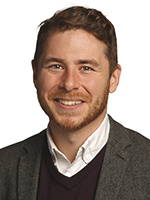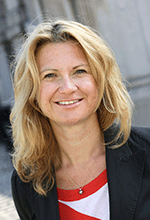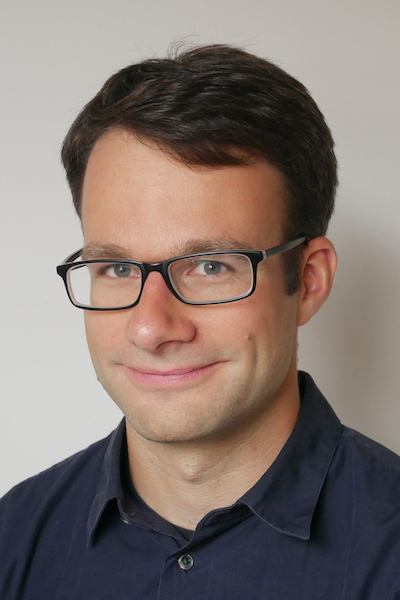 Toufoul Abou-Hodeib, Associate Professor of History, Department of Archaeology, Conservation and History
Toufoul Abou-Hodeib, Associate Professor of History, Department of Archaeology, Conservation and History
I am a social and cultural historian of the modern Middle East, and my current research focuses on the formation of popular culture as an academic field of inquiry in the 20th-century Levant. The project places the production of culture at the intersection of politics, aesthetics, and academic regimes of knowledge, as well as their circulation and formation across the political geographies of Europe and the Middle East. I have previously taught at the University of Oxford and the University of Chicago, and my publications include A Taste for Home: The Modern Middle Class in Ottoman Beirut (Stanford University Press, 2017).
.jpg)
Kristin Soraya Batmanghelichi, Associate Professor of Middle East Studies, Department of Culture Studies and Oriental Languages
My research lies at the intersection of religious practice, morality construction, sexuality, and health in contemporary Iran. In particular, I investigate the construction and acceptance of disciplinary modes that took shape after Iran’s 1979 Revolution—from global and domestic HIV/AIDS policy to anti-prostitution reforms— and look at how they are deployed as policy, and experienced, dispersed, and internalized by diverse populations, domestically. Concomitantly, I organize seminars and conferences on a range of topics which reflect my interdisciplinary training and proclivities—from tackling Spivak’s corpus to recognizing expressions of religious pluralism among refugees and migrants in the Middle East to understanding the dynamics of populism in the region. More recently, I have written on feminist activities in Iran, tracing the shifts in its women’s rights movement, especially its current challenges and potential vulnerabilities among diaspora, secular feminist, and/or online communities. Future research will likely entail studying different Shi’a religious texts in their sociological contexts and comparing religious scholars’ shifting engagements with ideals of health and sexuality in the face of changing social and political norms and conditions in Iran and across the MENA region. I am keen to examine the construction and deployment of moral codes in the scholarship of Grand Ayatollahs and Iranian religious intellectuals. I inquire, for women and those who feel and experience stigmatization, how are representative, spatial, and theoretical sites of marginality created and constituted through these didactic texts?

Kyle Devine, Associate Professor of Musicology, Department of Musicology
I specialize in musical culture since 1900, with a focus on sound technology and an approach that combines music studies with media studies and cultural sociology. I'm finishing a book about the history of what recordings have been made of, and what happens to those recordings when they’re disposed of. It's a kind of environmental history of recorded music recording according to three main kinds of stuff: shellac, plastic, and data. I am also coediting a related book about the social lives and social deaths of various other musical commodities in both industrializing and industrialized parts of the world. Most of my other publications are about histories, cultures, and theories of sound reproduction, including work on gender and social inequalities in music technology education. Music sociology is my other main interest—especially the field’s pasts and prospects.

Gunn Enli, Professor in Media Studies, Department of Media and Communication
I am a professor in media studies, spesialicing in politicial communication, social media and policy and regulation studies. My current research focuces on trust and authenticity, and how the media represents reality: Why do we (dis)trust the media, and how doe smedi atrust impact on society, institutions, and users? How is trust negotiated between media institutions and users, and among users on social media? My experience as a research leader is primariy from leading the NFR-project Social Media and Election Campaigns (2012-2016). For further information about my research, projects, and publications see my personal website and Google Scholar.

Peter Fritz, Professor of Philosophy, Department of Philosophy, Classics, History of Art and Ideas
I am a philosopher working in logic, metaphysics and the philosophy of language, in particular on propositions, properties and relations as well as their relationship with necessity and possibility. My research aims at developing a comprehensive theory of these entities which settles central questions about them, such as whether there could have been other propositions, properties and relations than there in fact are, and what it takes for such entities to be identical. I develop these theories using tools from formal logic, known as higher-order and modal logics, and apply them to various fields in philosophy and beyond, such as the philosophy of language and formal semantics.

Pritty Patel-Grosz, Professor of General Linguistics, Department of Linguistics and Scandinavian Studies
The core of my research programme explores the nature of variables, locality and information structure in natural language. I approach these phenomena from the perspective of (i.) formal theoretical linguistics (syntax, semantics, pragmatics and the syntax-semantics-pragmatics interface), and (ii.) linguistic explorations beyond language (dance cognition and music cognition). Methodologically, my focus is on combining experimental methods from psycholinguistics and the cognitive sciences with a cross-linguistic, comparative outlook. My goal is to merge the different perspectives (formal theoretical linguistics, experimental testing, and cross-linguistic investigation), into a single overarching approach. By doing so, I aim to shed new light on universal patterns, within and across human languages, that are shared across different modalities (such as language, music and dance).

Francesco Venturi, Professor of Italian, Department of Literature, Area Studies and European Languages
My research interests are equally split between Renaissance literature and twentieth-century poetry and novels. I have devoted a monograph to Andrea Zanzotto, one of the most complex contemporary poets (Genesi e storia della 'trilogia' di Andrea Zanzotto, Pisa: ETS, 2016), and have worked extensively on Carlo Emilio Gadda, arguably Italy's greatest modernist writer. Among my forthcoming publications are the critical and commented edition of sixteenth-century poet Annibal Caro's Rime (Milan: Mimesis) and the edited volume Self-Commentary in Early Modern European Literature (Leiden-Boston: Brill), which gathers fifteen contributions by established scholars and experts in the fields of English, French, Italian, Spanish, Neo-Latin, Dutch and Polish literature.